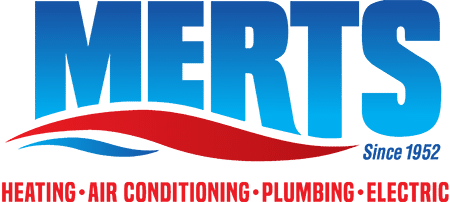Natural gas is a wonderful source of energy to heat your home, but never lose sight of the fact it also has inherent dangers. It is flammable and can cause deadly explosions if home gas safety guidelines aren’t followed. Merts Heating & Air Conditioning wants to make sure you are aware of potentially dangerous situations in your Illinois or Northwest Indiana home.
Detecting gas leaks
When it comes out of the ground natural gas has no odor. That would be a very dangerous situation, so a chemical odor is added to the gas before it’s piped into homes and businesses. The chemical gives the gas a strong smell of rotten eggs so leaks can be easily detected.
Visual warning signs
While smell is the most obvious way method for detecting gas leaks in the home, smell isn’t always reliable for leaks occurring outside the house. In those cases, there are some visual cues you should be aware of:
- There could be bubbles rising in a puddle or other pool of liquid
- If you see dust or dirt blowing from a hole in the ground
- Vegetation dying for no obvious reason
- You hear a hissing (small leak) or roaring sound (large break)
What to do
If you detect that rotten egg smell of gas, or suspect a gas leak for another reason, do not take any chances:
- If you are outside, Get away from the area immediately
- If you are inside, evacuate the building
- Call your gas company or 911, but do NOT use your landline phone, which may cause a spark
- Do nothing that might create a spark, including flipping any switches on or off
Two-step process
While the gas company is best prepared for an emergency response to shut the gas off, it may be a much different story when it comes to fixing a leak. Your gas supplier is usually not responsible for fixing a leak inside the home. Or if they do, it could take days for them to actually do the work, potentially leaving your home without heat when a polar vortex strikes. Your best bet for a timely leak repair to get the gas turned back on is to call Merts.
Safety checks
Complimentary gas checks can be done when our technicians are in your home on a service call. They have the sophisticated testing equipment to check for the presence of natural gas. Most often these gas checks are done during the winter but can be done at any time.
What about propane?
The same home gas safety precautions apply if you are using propane instead of natural gas, but there’s one important thing we want to make sure you’re aware of: Propane is heavier than air. In other words, you could have a leak in the basement or crawl space and not smell the propane inside the house. The gas continues to settle until the smallest spark ignites an explosion. Merts strongly recommends you have propane detectors if you use propane in the home.
Merts is here to help
Count on Merts Heating & Air Conditioning to help protect your Illinois or Northwest Indiana home against dangerous gas leaks. Be sure to like and follow us on Facebook and Twitter for more great information like this.

